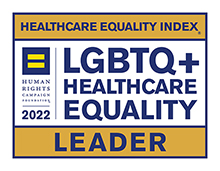Closets are for clothes: How to come out to your health care provider

Seeing a doctor for the first time carries its own sense of anxiety. What do I talk to them about? When was my last check-up? Is my blood pressure too high? How do I talk to them about my sexuality?
Among the many questions I would have for my doctor before seeing them, my sexuality is always at the forefront. Before calling to make an appointment, I'm worried about how staff is going to treat me after I disclose my sexuality. I’m worried about staff looking uncomfortable or worried my doctor will no longer want to treat me because I’m gay.
All of these concerns and more are some of the barriers LGBTQ+ (lesbian, gay, bisexual, trans, queer/questioning, etc.) folks face when receiving health care. It is important, however, to recognize the differences each person encounters when seeking care. Ultimately, coming out to your provider is critical for your overall health.
Why is it important to be out?
Disclosing your identity to your care team is crucial in receiving the best care possible. LGBTQ+ folks have the same health concerns such as getting the flu or a yearly physical, but there are areas particularly important to the LGBTQ+ community. By being out, your provider can address health concerns most relevant to you.
In particular, trans folks can benefit from being out with their provider to receive the best treatment plan possible to help them be their true, authentic self.
Nebraska Medicine is the only major public health system in Nebraska that's earned the Human Rights Campaign's Healthcare Equality Index Leader status. Learn more.
How do I come out to my provider?
This is the scary part for many LGBTQ+ people. After we disclose our sexuality or gender identity, we fear prejudice, discrimination, harassment or bullying for being our true, authentic selves. Come out when it is important or when you are ready, take a moment to talk to your provider. By coming out, your doctor now knows the particular issues the LGBTQ+ community faces and can treat those concerns. If you are worried about others finding out about your sexuality or gender identity, remember, health care workers are obligated by law to only discuss your health with you.
If your provider is uncomfortable after you’ve disclosed information, you can always find a new one. You have the right to feel validated when receiving care.
How can I find an LGBTQ+-friendly provider?
There is no easy way other than being open and honest with your provider. There are databases, such as the Human Rights Campaign, keeping track of LGBTQ+ friendly institutions. Before the first appointment, ask about a provider's history treating LGBTQ+ folks. Be sure to speak out about any uncomfortable experiences with a provider or care team with our Patient Relations team. Advocating for yourself in this way ensures you get the best care possible.
Why is LGBTQ+ health important?
LGBTQ+ folks have a history of health care systems denying us care. We face a history of social stigma, discrimination and denial of our civil and human rights. Combating health disparities and improving LGBTQ+ health is important to improving the quality and length of LGBTQ+ lives. Due to these issues, LGBTQ+ folks face higher rates of psychiatric disorders, substance abuse and suicide.


